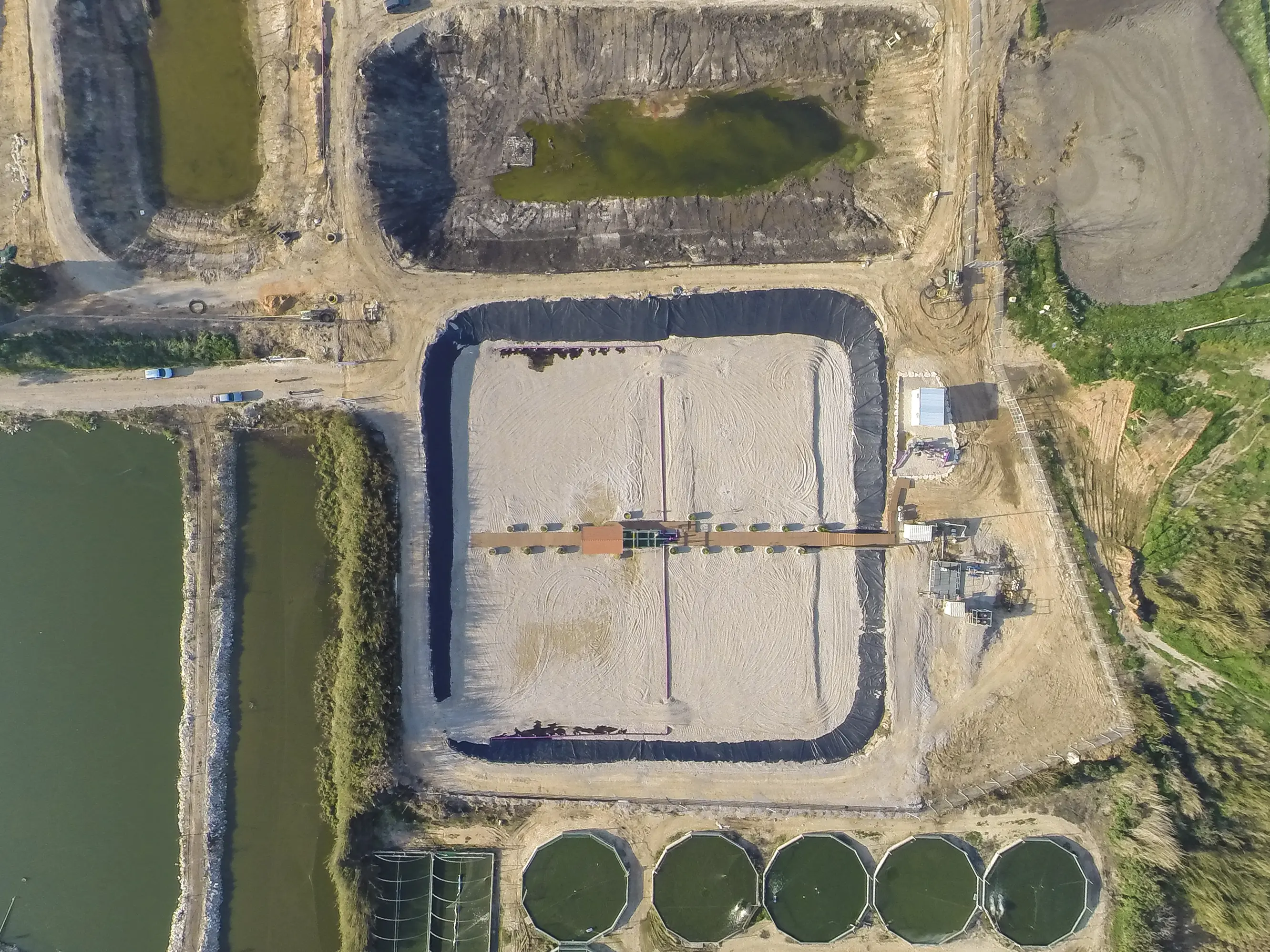Water reuse autonomy with
maximum savings and minimum resources
Menashe Council
Phase I – 2013, Phase II – 2020
Menashe (near Granot Plant, Gan Shmuel)
3,500 m³/day
Municipal & Industrial Wastewater Treatment
Operational
In 2011, the Menashe council decided to upgrade an existing Wastewater Treatment Plant (WWTP) and selected Triple-T to execute the project in order to comply with new environmental regulations requiring improved effluent quality for irrigation. The upgraded wastewater treatment plant would need to handle a combined wastewater stream from the local municipality, a dairy farm, a large fruit and vegetable processing factory and the Granot industrial area. In order to enable continuous operation of the plant, the project was divided into 5 phases. Phase 1, TAYA ECO, based on gravel media, began in 2011. Phase 2, in 2019, involving TAYA GROW, the first WWTP based on plastic media in Israel, began in 2019. In the future, phases 3-5 will be continued upon customer demand. The TAYA technology was chosen due to the low lifetime costs derived from the energy savings, sludge minimization and operational simplicity. The project (phase 1) resulted in high performance, 80% energy savings and sludge minimization, with annual cost savings of hundreds of thousands of dollars.
Phase 1: The goal was to upgrade the effluent qualities to meet new regulations.
Phase 2: Following the success of phase 1, Menashe Regional council searched for a solution to replace the activated sludge system in order to reduce the WWTP’s electricity consumption and cost. Currently under construction, it is expected to be completed at the end of 2020.
In terms of background, in 2006, the Menashe Regional Authority constructed an activated sludge system consisting of an aerobic reactor and two clarifiers, but it did not include the necessary infrastructure for nitrification and denitrification. The effluent from the upgraded treatment plant was required to meet stringent irrigation requirements by 2015. The Menashe council was asked to prepare a plan for regulatory compliance to new irrigation standards including full nitrification and denitrification. Triple-T was selected for this exciting project due its novel TAYA technology.
The Menashe WWTP upgrade included four different phases of construction: Effluent polish treatment system, pre-treatment system, aerobic system upgrade and disinfection system.
Triple-T designed two back-to-back TAYA systems, engineered inside an existing basin on site. This design enabled the WWTP to reach its quality goals, including TN reduction, without requiring additional land area for construction.
During the process for phase 1, TAYA ECO (gravel based) was added, following the existing activated sludge. The result: The WWTP met the regulations, with a negligible increase in electricity consumption.
During the process for phase 2, TAYA GROW (plastic based) is added, following the existing activated sludge.
Since August 2013, Triple-T provided Menashe (phase 1) with a resilient, flexible and energy efficient local TAYA solution capable of addressing its wastewater challenges. The project resulted in energy consumption full load capacity of 0.04 kWh/m³ * and maintenance frequency of 2 working days in total per month, 80% energy savings and sludge minimization. By introducing TAYA, the customer benefited from high treatment performance in accordance with Israeli tertiary standards, robust process design, minimal O&M, and annual cost savings of hundreds of thousands of dollars per year. Achieving effortless stable effluent for ultimate peace of mind and true water autonomy, we empowered the Menashe Council with the ability to maximize their water resources production, while decreasing energy consumption – saving costs and demonstrating an eco-responsible approach.
* normalized according to the maximum capacity of the facility






